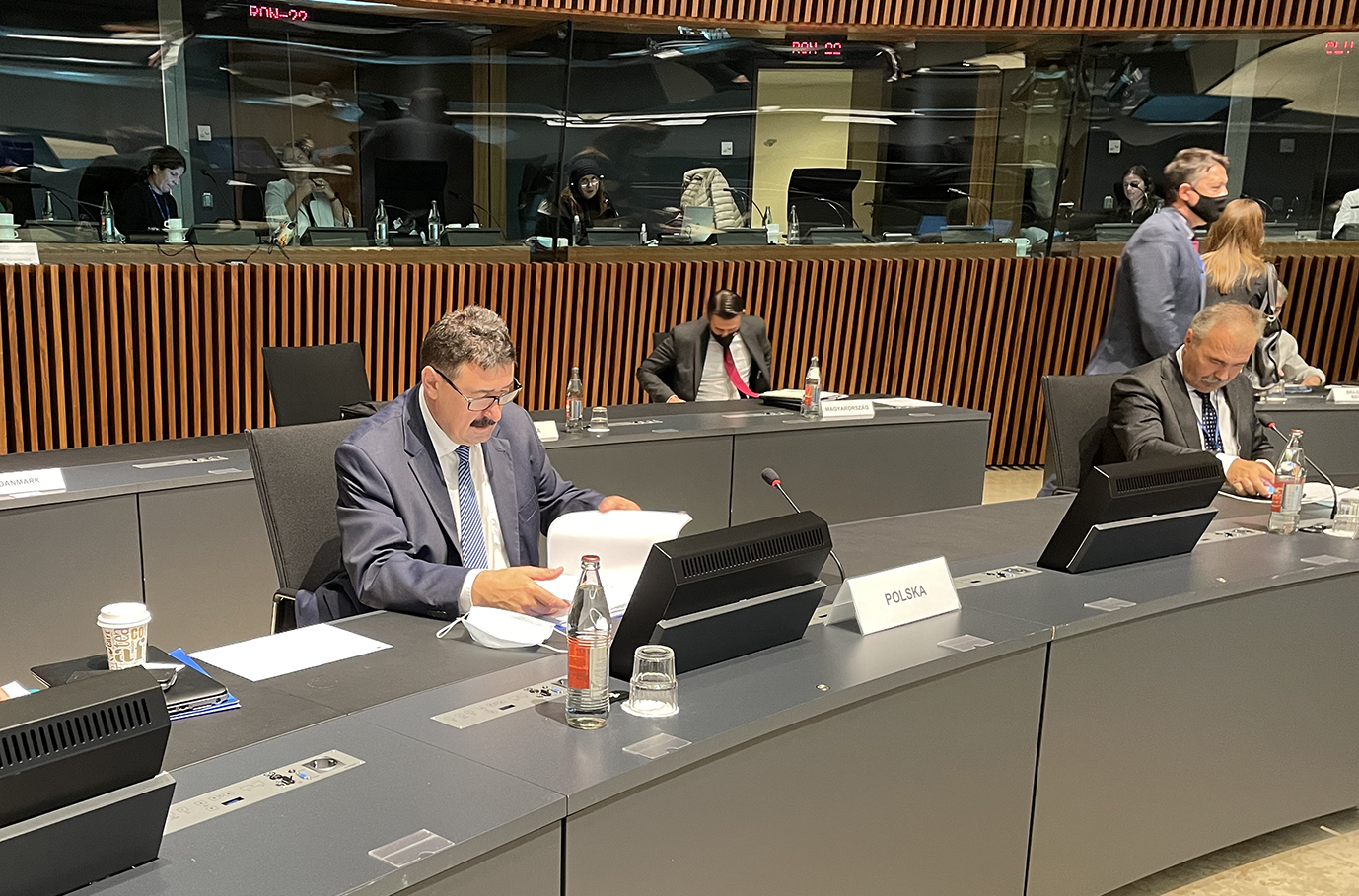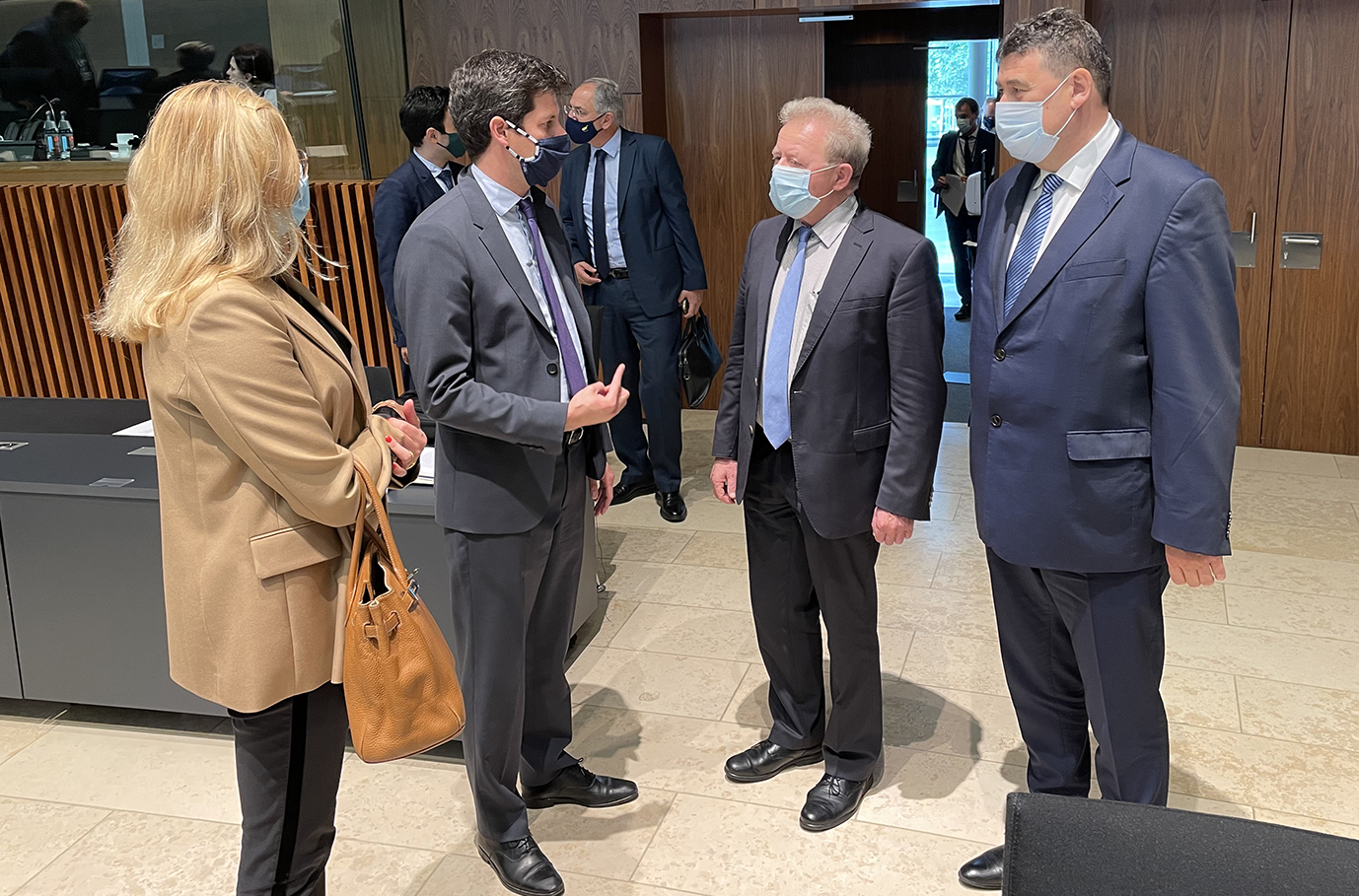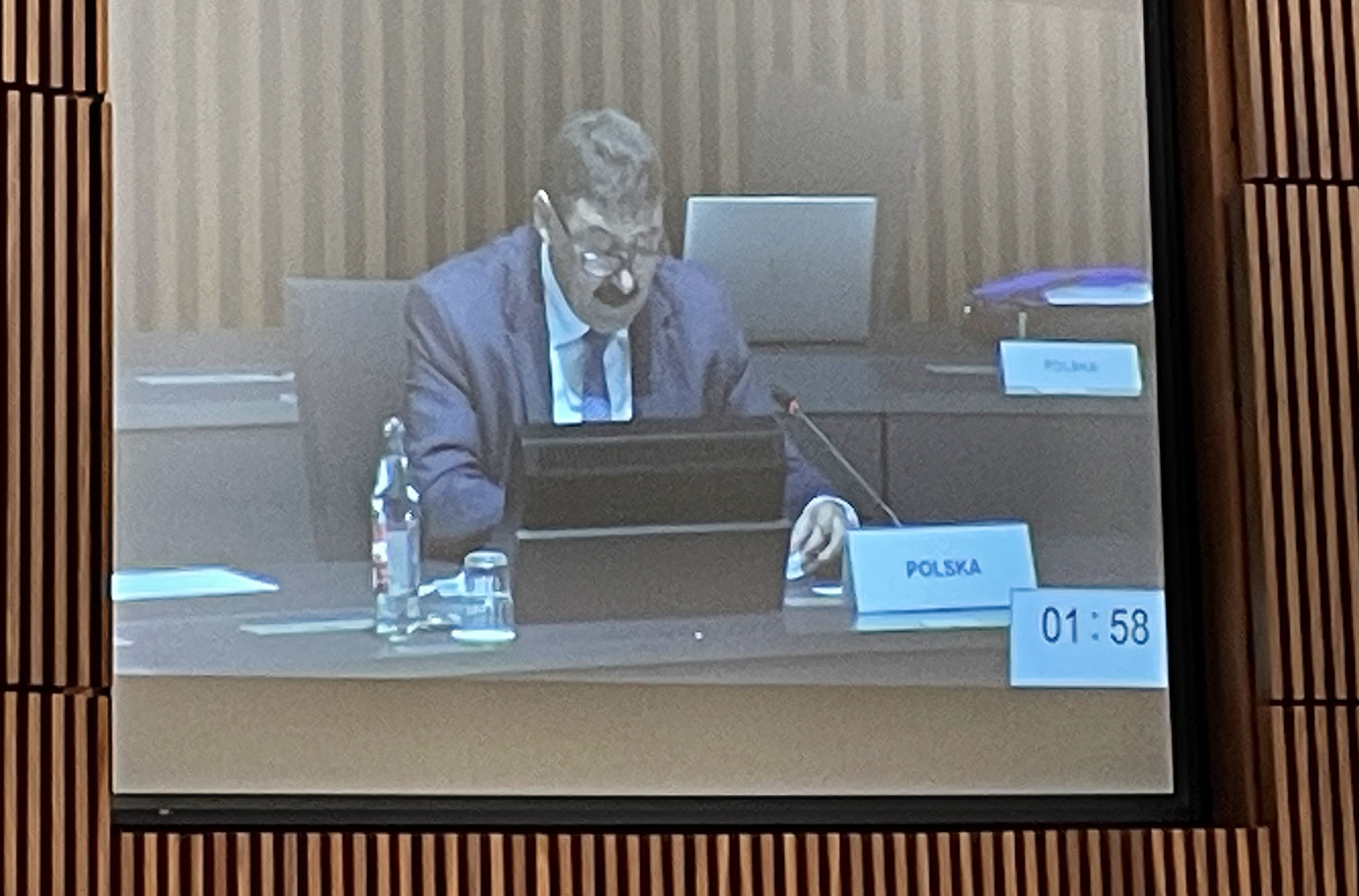Meeting of the EU Agriculture and Fisheries Council in Luxembourg
14.10.2021
The meeting was attended by Ryszard Bartosik, Secretary of State.

FISHERY
On the first day, the discussion focused in particular on the proposal for a Council regulation determining the fishing opportunities in the Baltic Sea for 2022. Views were also exchanged on future consultations with third countries, i.e., Norway and the United Kingdom, on fishing opportunities for 2022.
As a result of difficult all-night negotiations, in the morning of October 12 this year, EU fisheries ministers reached a political compromise on the amount of fishing quotas for 2022 in the Baltic Sea. During the debate, Secretary of State Ryszard Bartosik emphasised Poland's concerns over the deteriorating condition of the Baltic fish and the resulting serious reductions in the fishing quotas of the most important fish species. He also indicated that the proposed total allowable catches (TACs) will affect the Polish fisheries sector to an extent incomparable with any other states in the region, rendering the economic conduct of fishing activities impossible. He further called on the Commission to promptly launch appropriate protective measures under the European fisheries funds.
According to the adopted regulation, the following fishing quotas in the Baltic Sea were established for 2022. Quota for by-catch only: Cod (area 22-24) 489 tonnes, Cod (area 25-32) 595 tonnes, Herring (area 22-24) 788 tonnes and Salmon (area 22-31) 63,811 units. Quota for directed fishing: Herring (area 25-29, excluding the Gulf of Riga) 53,653 tonnes, Plaice (area 22-32) 9,050 tonnes, and Sprat (area 22-32) 251,943 tonnes.
AGRICULTURE
National strategic plans
The ministers presented information on the state of preparation of the national CAP strategic plans. During the discussion, all Member States highlighted the extreme time pressure in the planning process. The main difficulty in the preparation of the plan stems from the need to keep the deadline for submitting the final draft to the Commission – by 1 January 2022. Legal uncertainty was also raised with regard to the expected late adoption of secondary legislation.
Deputy Minister Bartosik emphasised that the process of assessment and approval of strategic plans should be transparent and conducted in a partnership manner, with the active participation of Member States.
“The Commission should agree with the states and present detailed and objective rules for assessing the plans. Ideally, they should be part of the implementing regulation,” said Secretary of State.
Environmental and climate issues
In Poland’s view, a special element of these rules should pertain to the assessment of efforts to implement the Commission’s recommendations on environmental and climate issues and the inclusion in the plan of a contribution to the implementation of EU’s Farm-to-Fork and biodiversity objectives. When assessing strategic plans, the Commission should avoid over-interpreting the provisions, especially when they do not pertain directly to the CAP.
The proposed strengthening of the environmental and climate aspects under the CAP may be an opportunity for farms and small rural towns. In this context, the challenge is to design interventions that will generate interest among future beneficiaries, and this will also prove the success of the reformed CAP.
Changes in EU marketing standards
Referring to the amendment of EU marketing standards for agricultural products, ministers agreed that they should be reviewed in order to provide information to consumers. Emphasis was placed on the importance of the system of marketing standards as a tool to facilitate trade and preserve the common market. Although the Member States generally agreed that the modernisation and simplification should take place, they also indicated that the standards must allow for taking account of changes in consumer preferences, technological advancements and innovation. In Poland’s view, certain areas could be identified where there is a possibility and justification for making changes that take account of the evolution of technology, marketing strategies and consumer preferences.
Due to the growing awareness of the importance of a healthy diet based on fruit and vegetables, and in view of the problem of food waste, it would be useful to consider liberalising the marketing standards in the fruit and vegetable sector. Poland also believes that it needs to be considered whether certification of hops is necessary for the operation of this sector.
For honey, Poland indicated that amendments to the EU legislation on honey labelling should start with Article 2 of the Council Directive, which refers to the use of the term “blend of honeys”, and it should be considered whether it is possible to introduce an obligation to include an ordered list of countries on the label, starting with the country with the highest percentage of honey in the packaging.
Difficult situation on agricultural markets and fertilizer prices
At Poland’s request, the ministers discussed the difficult situation on the agricultural markets which results from rising fertilizer prices.
Secretary of State Ryszard Bartosik indicated that this situation poses a threat to the competitiveness of European farmers and the implementation of the European Union’s key objectives resulting from the European Green Deal, i.e., transforming the EU into a modern, resource-efficient and competitive economy, ensuring no person and no place is left behind.
Poland requested that the European Commission take firm and concrete steps to stabilise or temporarily compensate for the high costs of fertilizers, which will translate into stabilising the prices of food and providing urgent support to farmers in this crisis situation.
Poland’s concerns were supported by other countries. Commissioner J. Wojciechowski informed that he sees the impact of rising energy prices on increased costs of production, which in some sectors are slightly compensated for by high prices of cereals, poultry meat and fruit and vegetables. He agreed that farmers cannot be the only link in the supply chain to bear the costs of the current situation. He assured that the European Commission is working on a set of tools that will help the Member States respond to the challenge of rising energy prices at the national level, within the existing legal framework.
Crisis in the pork sector
An AOB item concerning the crisis in the pork sector was also discussed, on the basis of information from the Belgian delegation, supported by Austria, Belgium, Bulgaria, Croatia, Cyprus, Czech Republic, Estonia, Finland, France, Germany, Greece, Hungary, Latvia, Lithuania, Luxembourg, Malta, Poland, Romania and Slovakia. The signatories indicated that in the last year, the margins in the sector were the lowest in ten years. Low carcass prices as a result of an increase in production, the effects of African swine fever (ASF) and limited opportunities of export to Asian countries, including China, are accompanied by high costs of production, in particular high prices of feed. The Member States asked the EC to consider the implementation of exceptional market measures on the basis of regulation on the common organisation of markets.
Poland shared the opinions and concerns about the parlous situation in the pork market.
“The financial situation of pig producers has constantly deteriorated. The extreme decline in the profitability of production poses a real threat of many farms retiring from production, particularly in areas where African swine fever occurs,” said the representative of Poland.
He also expressed his expectation that the Commission should launch emergency aid for producers from ASF-affected areas.
Commissioner J. Wojciechowski informed that the European Commission recognises the pressure exerted on the pork market as a result of low pig prices and high costs of feed, energy and ASF. He stressed that the fight with ASF must be prioritised. He assured that the situation is being monitored while pointing out that any intervention in the pork market must be careful, especially in view of the current overproduction in the EU. In the opinion of the EC, the best solution is state aid focused on specific problems in a specific Member State and measures under RDP.
Fit for 55 package
The last item on the agenda was the Fit for 55 package. During the discussion, many delegations drew attention to the potential conflict between the Fit for 55 package and the treaty goals of the CAP, with particular regard to ensuring food security. States also drew attention to ensuring appropriate incentives and investment instruments for farmers with a view to taking pro-climate measures and maintaining the competitiveness of agriculture, and to the need of informing society in full about the needs and consequences of the measures. Many delegations pointed out the need for further clarifications on how to divide the reduction efforts among the Member States and a detailed analysis of the impact on the sector (both agriculture and forestry). Most delegations indicated that all aspects of the package need to be discussed further and in a thorough manner, and that stakeholders should participate in the discussion due to the very high possible impact of the proposed changes on the sectors concerned and, consistently, also on society.
Poland believes that the Fit for 55 package poses ambitious challenges for a number of sectors, including agriculture. In Poland’s opinion, there is a great threat stemming from the reduction targets being imposed on the agriculture and forestry sector, and from the removal obligation where the potential of both sectors is limited and they are dependent on natural conditions. This may lead to a reduction in the competitiveness of agricultural production in the EU.
Nevertheless, Poland sees opportunities to take measures aimed at reducing emissions and increasing removals from agriculture. These include solutions in the field of precision farming, biomass production or the implementation of the concept of coal agriculture, the objectives of which are now being discussed. Any steps taken to address that will require the provision of appropriate financial incentives.



